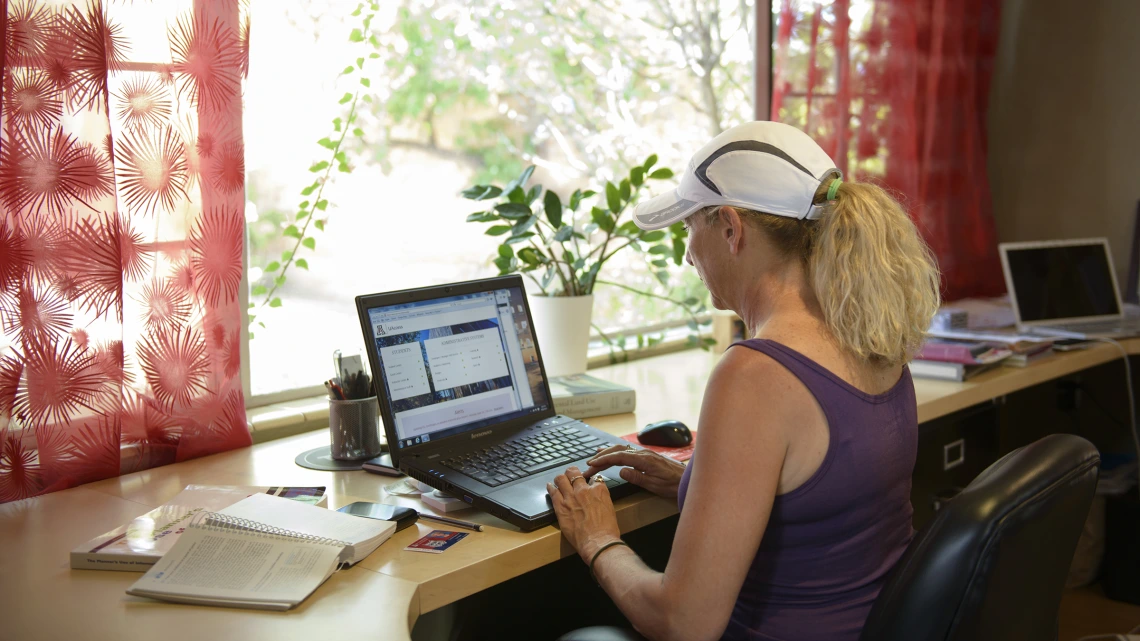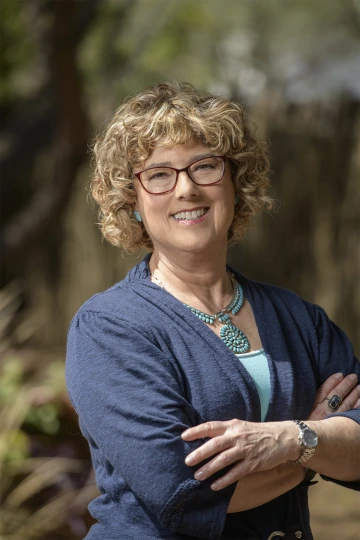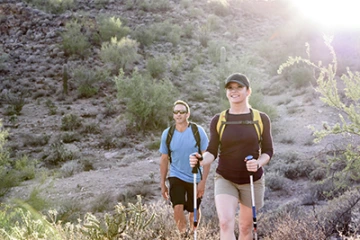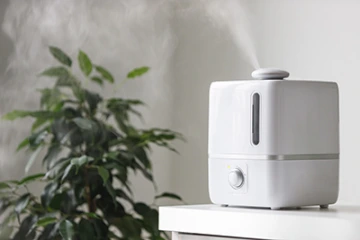Is COVID-19 Keeping You at Home? Turn Your Place Into a Healing Space
The way you lay out your physical environment can reduce stress and create calm, says a University of Arizona Health Sciences researcher.

Following simple suggestions can help you turn your home from a stressful place to a sanctuary of well-being in this difficult time.
In response to the COVID-19 pandemic, University of Arizona President Robert C. Robbins, MD, recently recommended UArizona faculty and staff work from home if possible.
The result? Hundreds of UArizona Health Sciences employees are doing their jobs via telework agreements for the foreseeable future.

Esther Sternberg, MD
Dr. Sternberg is founding director of the university's Institute on Place, Wellbeing & Performance, a partnership that includes the Andrew Weil Center for Integrative Medicine, the College of Medicine – Tucson and the College of Architecture, Planning and Landscape Architecture.
The institute is dedicated to a vision of human health that fully encompasses the role of the built and natural environment in health, well-being and healing.
Dr. Sternberg, a pioneer in design and health research, offered some advice for creating a calming environment within your home using evidence-based practices. She suggested people think about their homes using their senses — "what you see, hear, smell, touch and do in a space."
What you see
Beautiful views of nature are calming, so if you are working from home, try to place your desk or laptop near a window, Dr. Sternberg said.
"If you don't have a beautiful view, add a few potted plants to the windowsill, find a poster or photo of a favorite view and pin it to the wall near your desk," Dr. Sternberg said.
Even without a nice view, sunlight will enhance your mood. If you don't have a window to let in sunlight, full-spectrum lightbulbs or light boxes can boost moods almost as well as some antidepressants, she said.
Looking at a cluttered area is stressful, so now is a good time to reduce your clutter, Dr. Sternberg added.
What you hear

Nature soundtracks featuring ocean waves, rippling brooks, rain or birds can be found online and help create a calming environment.
"Music can also calm and uplift your mood," Dr. Sternberg said. "Listen to your favorite soundtrack as you work. This can help drown out the sound of family members, allowing you to concentrate on your work."
What you touch
Soft, plushy fabrics tend to be calming, Dr. Sternberg said.
"When you are ready for bed, snuggle in a soft comforter or put on a pair of fuzzy socks," she suggested. "The warmth will help you fall asleep."
What you smell
Fragrances calm in two ways. Some fragrances, like lavender, are actually chemicals that induce sleep and calm. Aromatherapy uses essential oils to aid well-being, and lavender is one of them. Other fragrances, like the smell of apple pie or freshly mown grass, can evoke happy memories and reduce stress.

Even if you are staying home, most mandates allow walking outside, as long as you stay at least 6 feet away from others.
"Try to avoid artificial fragrances, as they can contain chemicals that can alter normal hormonal functions," Dr. Sternberg said.
Good ventilation is also important.
"If you are cooped up in a closed space, especially with several people, the carbon dioxide that you all breathe out can accumulate, making you sleepy and impairing your ability to think clearly," Dr. Sternberg said. "Make sure you walk around or walk outside periodically. Put a small fan near your computer to blow away the carbon dioxide you exhale. Open windows and doors — the fresh air will reduce the carbon dioxide inside."
What you do
Love of plants and nature and being in nature, called "biophilia," lessens stress and boosts moods, Dr. Sternberg said. In the early 20th century, Tucson, with its sunshine, high desert and mountains, was considered a healing destination.
Even if you are staying home, most mandates allow walking outside, as long as you stay at least 6 feet away from others and the area is not crowded. Take time every day to take a walk, if permitted in your location, Dr. Sternberg suggested.
Getting comfortable
Dialing in the ideal temperature and humidity can help turn your house into a healing space, Dr. Sternberg said. Research has shown that conditions that are too dry increase the risk of viral infection, while conditions that are too wet increase the risk of mold.

Maintaining recommended relative humidity levels of 40-50% can reduce stress and lower the risk of viral infection.
If you don't have a central humidifier, put a portable humidifier in the room where you work or sleep.
Ergonomics is also important. Make sure that you have a comfortable place to sit or stand so that you don’t strain your neck muscles while working on your computer, said Dr. Sternberg, a rheumatologist and member of the Arizona Arthritis Center and BIO5 Institute.
"Following these simple suggestions can help you turn your home from a stressful place to a sanctuary of well-being in this difficult time," Dr. Sternberg said.

